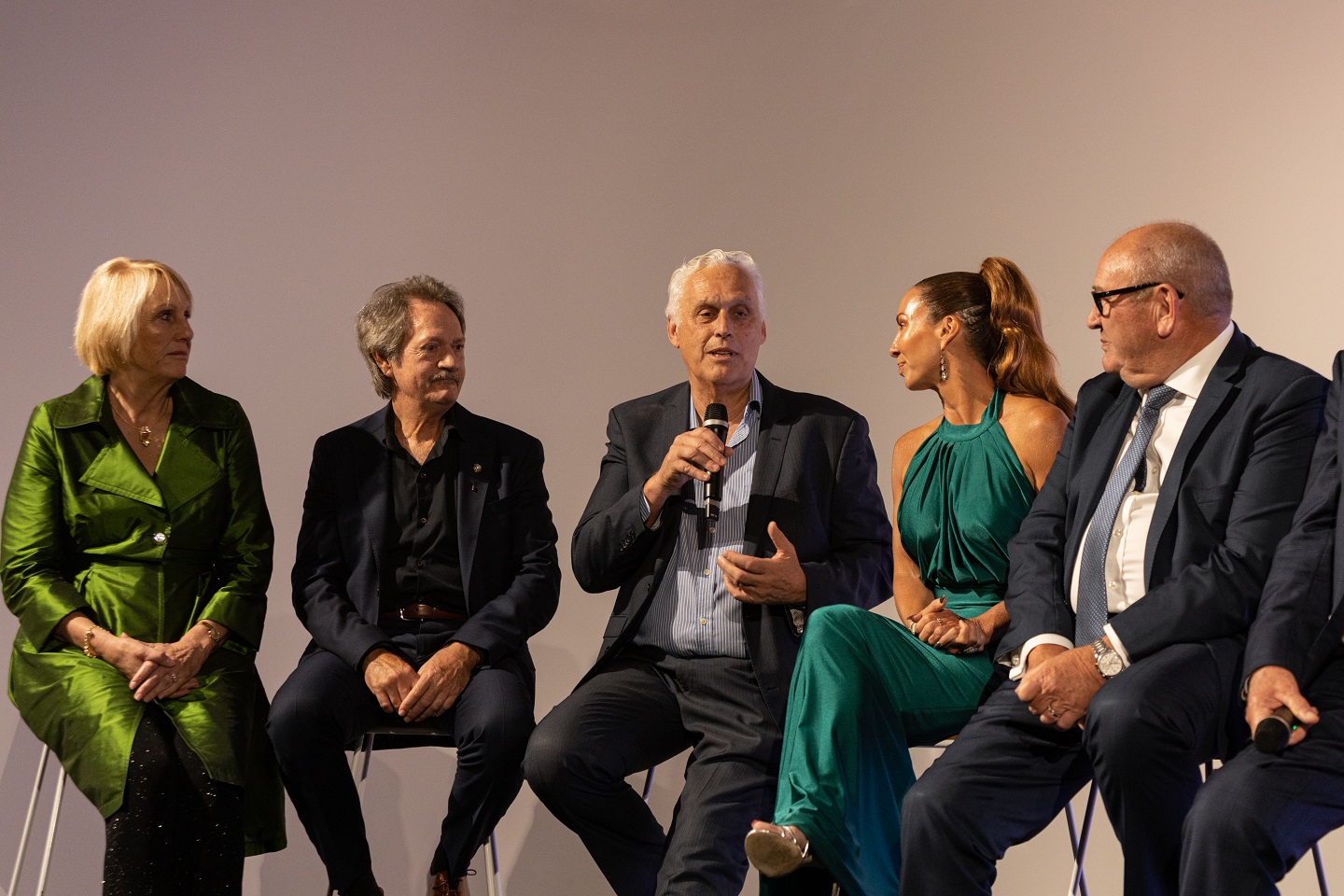A new book profiling eight successful business people, including Murray McHenry, Rick Hart, Lew Beale and Kylie Radford, discusses what makes a great entrepreneur.


What makes a great entrepreneur? A new book profiling eight successful business people, including Murray McHenry, Rick Hart, Lew Beale and Kylie Radford, has a few answers.
Murray McHenry describes himself as a frustrated farmer whose main interest these days is growing grapes.
His modest description belies an extraordinarily busy career during which he has built, bought and sold multiple businesses.
Mr McHenry is best known as the publican at one of Perth’s most famous pubs, Steves Nedlands Park Hotel, and as a prominent football administrator, chairing both the West Coast Eagles and the WA Football Commission.
In tandem with multiple business partners, most of whom he calls old mates, he has also owned catering companies, bottle shops, nightclubs and wine distributors and still chairs hospitality supplies business HiscoNFE.
Mr McHenry is one of eight people profiled in Entrepreneur to Megapreneur, a new book by Perth author Lesa Hinchliffe.
It’s a colourful and highly revealing walk through the lives and business achievements of its eight subjects.
Among those featured are Lorraine and Peter Hodgson, who build Orbit Fitness into the largest independent retailer of gym equipment in Western Australia.
Nearly all those profiled in the book started with very little but leapt at opportunities.
Ms Hodgson recalled scrimping in the early days of her marriage.
“We both worked several jobs and saved every penny; we stayed with Peter’s mum,” she said.
Rick Hart made his foray into whitegoods retailing after a mate told him about some fridges an insurance company was trying to offload.
“We made a pretty ridiculous bid, and much to our surprise they accepted,” Mr Hart recalled.
They sold the fridges from a panel beating workshop in Osborne Park after placing ads in the old Readers Mart, and Mr Hart never looked back.
Others have built existing businesses into something much larger.
These include Lew Beale at swimming pool company Aquatic Leisure Technologies, and Peter Cumins at Cash Converters International.
While successes are recognised, the book also details that almost all the entrepreneurs have come close to losing money.
They include renovation queen and 40under40 award winner Sasha deBretton, who built Million Dollar Makeovers into a successful business.
As the book was approaching completion, her story took a sudden turn for the worse, when a cash flow crisis pushed it into administration.
Speaking at the book launch last month, Ms deBretton said she had sold everything to pay debts and, after briefly dabbling in renovations again, was now building an online business, helped by her tough experiences over the past year.
Another 40under40 winner to feature in the book is Kylie Radford, who has built Morrison into one of Australia’s most successful fashion brands.
Morrison started off selling homewares before Ms Radford found her true calling, illustrating the way most of these entrepreneurs have adapted their business plans to suit new opportunities.
A lot of them learned the basics of business from their parents – things like checking stocks, watching cash flow closely, chasing up invoices.
The entrepreneurs also highlighted the importance of building good relationships with banks and other suppliers.
“Often cash flow can get tight, but most suppliers will help if you’re honest with them,” Peter Hodgson said.
Family impact
The book depicts the family background of each entrepreneur and picks up on personality traits that have defined their entire lives.
Take Mr McHenry, for instance.
“Almost from the moment he drew his first breath Murray was full on – he couldn’t and wouldn’t sit still,” Ms Hinchliffe wrote.
A keen sportsman, he rowed for WA in the 1969 Kings Cup and later tried out for the Olympics.
Mr McHenry bought his first hotel in Bassendean in his 20s but later turned his attention to Steves, named after his late father.
The McHenry family held the licence for many years and he was determined to buy the freehold after the Swan Brewery put it up for sale in the mid 1970s.
Mr McHenry paid $1 million, determined that the hotel would not fall into the hands of Alan Bond or Dennis Marshall, who were rumoured to be sniffing around.
It was a gutsy move because Mr McHenry didn’t have the money but it turned out okay after he bumped into an old school friend who had gone into banking.
“It’s very hard to plan for these events but if you fly by the seat a little, stay focused, believe in what you’re doing and you’re reasonably sensible, things usually work out alright,” he said.

Picture of Rick Hart (left) with Kylie Radford and Lew Beale at the book lunch.
Steves was almost a licence to print money during the 1970s and 1980s and it gave Mr McHenry the capacity to invest in numerous other ventures, including catering, wine distribution and liquor stores.
In 1987 he even bought Cockatoo Island off the Kimberley coast and built a holiday home.
The book explains that his partnering approach made this possible.
“Like most successful business people, Murray believes that to succeed in business you must surround yourself with good people,” Ms Hinchliffe wrote.
“But Murray takes it one step further. He doesn’t just employ good people he actually backs them and goes into business with them.”
Mr McHenry also had a pivotal role to play in the West Coast Eagles, which faced enormous struggles in its early days.
He recalls meeting up with another club founder, Neil Hamilton, when the Eagles faced an urgent need to raise $5 million.
“He came to my office at about five o’clock that afternoon and, as Neil and I do, we opened a couple of Crownies, got the whiteboard out and started talking,” Mr McHenry recalled.
They teamed up with a few old mates to raise the $5 million, and the rest is history.
Mr McHenry has faced a few dramas, however.
In 1988, the renewal of the liquor licence at Steves was refused because of complaints by local residents. It took an expensive legal battle to have it reinstated.
The old hotel was closed in 2004 and replaced by a small wine bar and restaurant, with most of the site converted into luxury apartments.
The final stage of that development coincided with the GFC and caused a big financial shock for Mr McHenry, who was forced to sell his new Cottesloe apartment to pay the debts.
As a co-founder of McHenry Hohnen Vintners, his main interest now is producing quality wine and spending more time in Margaret River.















